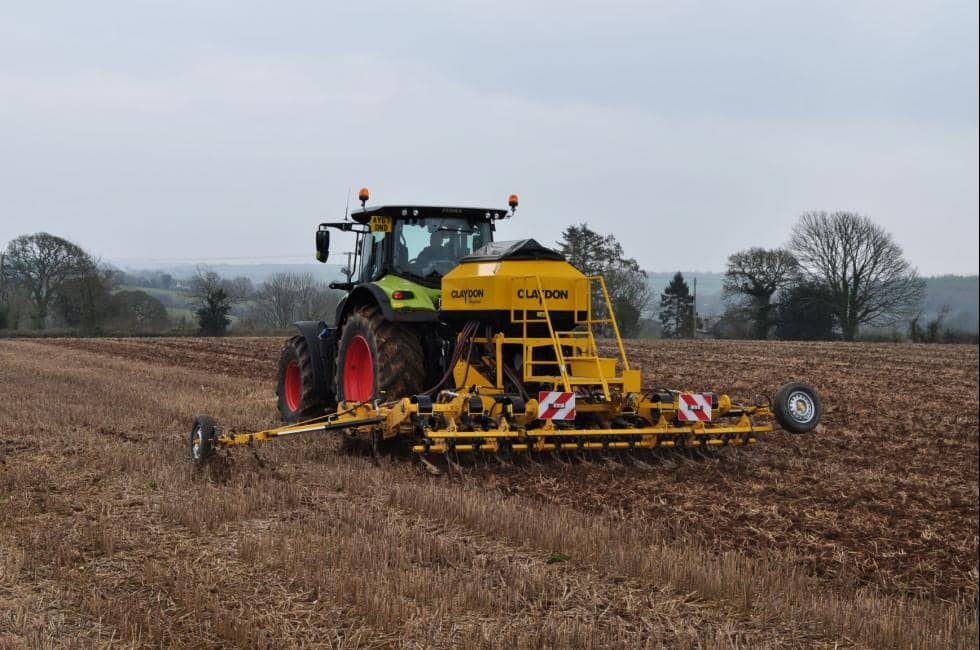Soil management plan
All farmers must now have a Soil Management Plan to demonstrate that they are considering the risks of farming operations on soil health, and minimising the risk of nutrient pollution and soil erosion.
Creating a soil management plan will help you:
- Improve soil health
- Improve crop yields
- Reduce runoff, soil erosion and flood risk
- Grow food sustainably
- Protect the soil resource for future generations
- Reduce the effects of climate change
- Protect historic features
A Soil Management Plan is especially important for land that is at risk of runoff and soil erosion, is close to watercourses and water supplies, is at risk of losing carbon or releasing greenhouse gases, or where we have historical features that need protecting.
The Sustainable Farming Incentive (SFI) will pay you £60/ha and £97 per SFI agreement per year for you to do this (SAM1) as long as you also test soil organic matter at least once every 5 years.
We have been working on a way of helping you prepare a plan as cost effectively as we can, so that you maximise your payment for this option and minimise our time input towards it (and therefore cost to you).
We have produced a form which identifies all the soil risk management factors that you may have on your farm. Our plan is that we send you this form, together with a description of the soil types you have on your farm and how to assess risk level in terms of slope. Each field can then be considered individually and written against what would be the relevant risk on each field. You can either do this on your own, or we can assist you if you require. You can then send us the form back and we will produce the final report for you.
Within the report there is a section that you can use to record any soil issues during the year, and this can then be used to update the plan in the following year as required by the scheme.
What land is eligible for SAM1?
Land eligible for SAM1 will come under land use codes for arable crops, leguminous and nitrogen fixing crops, fallow, temporary and permanent grass and permanent crops, and compatible land cover is arable, permanent grass and permanent crops.
Land which is in all ES revenue options, the SFI pilot and many of the CS options are eligible to be put into SAM1. Land parcels that you have in SFI or CS for hedgerow management can also be entered into SAM1.
What else do I need to do for SAM1?
SAM1 is a static option in the SFI, so you must agree to do it on the same area of eligible land each year of your 3 year SFI agreement. You must review your plan at the end of the year, and update if necessary.
Soil Testing
You must make sure that you test all fields within your SFI agreement for soil organic matter within the last 5 years. Any historic soil tests can be used (as long as they contain the soil organic matter), but if you do not have these then you must try to do the soil organic matter test within the first 12 months of your agreement. If this is not possible (wet conditions/manure or fertiliser applications/lab capacity) then you must make sure you have it at the latest by the end of your 3 year agreement, but you must keep a record of why you have not been able to test.
Please note that for small land parcels (area not yet defined as ‘small’!) you can combine them into a single sample as long as the soil type and past land management is similar. This will reduce the cost of the analysis considerably on some farms with many small fields.
As a company we are committed to help you get the most from the new SFI Scheme to replace the lost BPS subsidy payment. But we are also striving to find ways of minimising the consultancy cost of providing the reports you need in order to meet the criteria.
Please let us know if you would like our help producing a Soil Management Plan and we’ll be in touch.
producing your soil management plan
Your Soil Management Plan needs to look at all the risk factors for each parcel of land that can impact on soil health, nutrient runoff and soil erosion. It then needs to show what management factors you plan to adopt in each parcel in order to minimise the risks in these fields.
We have produced a template which categorises the different soil types and the risks that can be associated with them, and what management practices may be considered to mitigate these risks. We can help you identify soil types, work out which management practices are relevant in each field, and produce a comprehensive Soil Management Plan for your farm.
Ongoing Monitoring
It is important that your Soil Management Plan is reviewed and updated at the end of each calendar year.
Our Soil Management Plan includes a section so that you can record any issues that you have found during the year as and when they occur. These issues can then be addressed when you review and update the plan at the end of the year.



